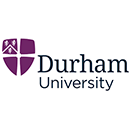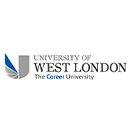Why Study in UK?
- Institutions consistently ranked amongst the best in the world.
- Numerous options of specializations to study.
- World-Class education and academic facilities.
- Admission is Possible Without IELTS.
- Affordable and value for money.
- Scholarships and Bursaries are available.
- Masters courses with paid placements or internships.
- Opportunity to work Part-Time i.e. 20 hours per week during study time for degree courses.
- Opportunity to work Full Time i.e. 40 hours per week during holidays.
- Post Study Work Visa of 2 years.
Types of Universities in the UK
There are more than 130 Universities in the UK which can broadly be classified into two categories:
- Traditional Universities
- Modern Universities
Traditional Universities
- Old and ancient universities are also known as Red Brick Universities.
- Prestigious and High Ranked.
- Research Focused.
- Offering a wide variety of subjects and specializations.
Modern Universities
- Polytechnics or other educational institutions which were given university status post 1992.
- Focused on applied learning rather than research with excellent industry tie-ups.
Map of the United Kingdom

Bachelor’s and Master’s
Duration of Program
The biggest advantage of UK education in comparison to other educational destinations worldwide is that UK provides programs of shorter duration.
- Bachelors – 3 years (4 years in Scotland)
- Masters – 1 year ( 2 years with placement / internship also available)
- Integrated Masters – 4 years (5 years in Scotland)
- Integrated Masters with a Sandwich Year – 5 years (UG and PG Combined with 1 year of internship)
Foundation / Diploma / Pre-Masters
Foundation Course and Foundation Degree
- A Foundation course is a one-year preparation course for international students who need additional English language and academic preparation for entry into the first year of a Bachelor’s degree at a UK university.
A Foundation degree is a two-year combined academic and vocational qualification, equivalent to two years of a Bachelor’s degree and is a stand-alone degree.
Diploma
- International Year 1 (IY1 Diploma): IY1 is a one-year program for students who are not eligible for direct entry to a Bachelor’s program and it leads to 2nd year of a Bachelor’s degree.
HNC: An HNC (Higher National Certificate) is a one-year course, equivalent to the first year of a bachelor’s degree.
HND: An HND (Higher National Diploma) is a two-year course, equivalent to the first two years of a bachelor’s degree. This qualification can be used to gain entry into universities in the final year of a Bachelor’s degree.
Pre-Masters
A Pre-Masters program is for international students who need to improve and develop their academics, research and seminar skills ahead of a Master’s degree. This course varies in length from ten weeks to twelve weeks. It offers a route to a postgraduate degree in several disciplines and is suitable for students who:
- Do not meet the academic requirements for admission into a postgraduate course.
- Want to change the discipline from undergraduate degree to postgraduate degree
Intake
- September / October
- January / February
However, many universities offer courses commencing in March/ April/ May/ June/ July/ August and November as well.
List of Russell Group of UK Universities
- University of Birmingham
- University of Bristol
- University of Cambridge
- Cardiff University
- Durham University
- University of Edinburgh
- University of Exeter
- University of Glasgow
- Imperial College London
- King’s College London
- University of Leeds
- University of Liverpool
- LSE (London School of Economics & Political Science)
- University of Manchester
- Newcastle University
- University of Nottingham
- University of Oxford
- Queen Mary University of London
- Queen’s University Belfast
- University of Sheffield
- University of Southampton
- UCL (University College London)
- University of Warwick
- University of York
Best Colleges In Uk





























